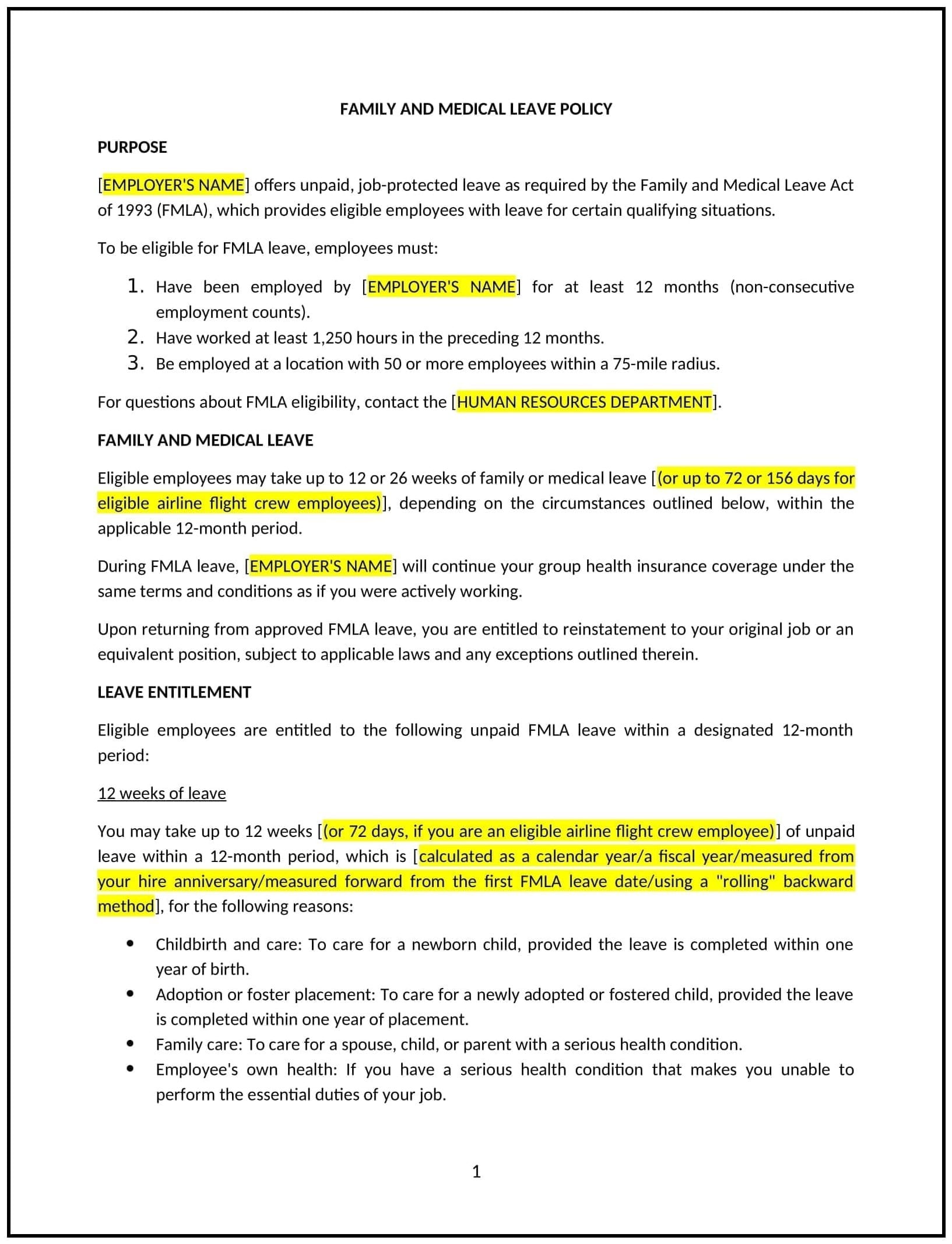Family and medical leave policy (Arizona): Free template
Got contracts to review? While you're here for policies, let Cobrief make contract review effortless—start your free review now.

Customize this template for free
Family and medical leave policy (Arizona)
In Arizona, a family and medical leave policy outlines employees’ rights and procedures for taking time off to address personal or family health needs. While Arizona does not have its own state-specific family and medical leave law, businesses must comply with the federal Family and Medical Leave Act (FMLA) and may provide additional benefits at their discretion.
This policy defines eligibility, the types of leave covered, and the process for requesting and managing leave. By implementing this policy, Arizona businesses can support employees while maintaining compliance with federal regulations and workplace productivity.
How to use this family and medical leave policy (Arizona)
- Define eligibility: Specify the requirements for employees to qualify for leave under the FMLA, such as a minimum of 12 months of employment and 1,250 hours worked in the past year.
- Outline covered leave types: Include reasons for leave, such as the birth or adoption of a child, serious health conditions, or caring for a family member with a serious illness.
- Provide request procedures: Detail the process for requesting leave, including notice periods and any required documentation, such as medical certification.
- Address leave duration: Specify the maximum leave allowed under the FMLA, typically up to 12 weeks of unpaid leave per 12-month period.
- Include job protection: Reassure employees that their positions are protected during the leave period, as required by federal law.
Benefits of using a family and medical leave policy (Arizona)
This policy offers several advantages for Arizona businesses:
- Supports compliance: Aligns with the FMLA and any applicable federal requirements, minimizing legal risks.
- Promotes employee well-being: Provides employees with the time needed to manage personal or family health issues without fear of losing their jobs.
- Enhances morale: Demonstrates the company’s commitment to supporting employees during challenging times.
- Protects productivity: Establishes clear procedures for managing leave requests and planning for temporary coverage.
- Builds trust: Reinforces a positive workplace culture by showing respect for employees’ personal and family responsibilities.
Tips for using a family and medical leave policy (Arizona)
- Address Arizona-specific considerations: While Arizona has no specific family leave law, businesses may choose to offer additional benefits, such as paid leave or extended leave durations.
- Educate employees: Provide clear communication about leave rights, procedures, and expectations during onboarding and policy updates.
- Train managers: Ensure supervisors understand the FMLA and company-specific policies to handle leave requests fairly and consistently.
- Use tracking tools: Implement systems to monitor leave usage and ensure compliance with federal regulations.
- Review regularly: Update the policy to reflect changes in federal laws or business practices.